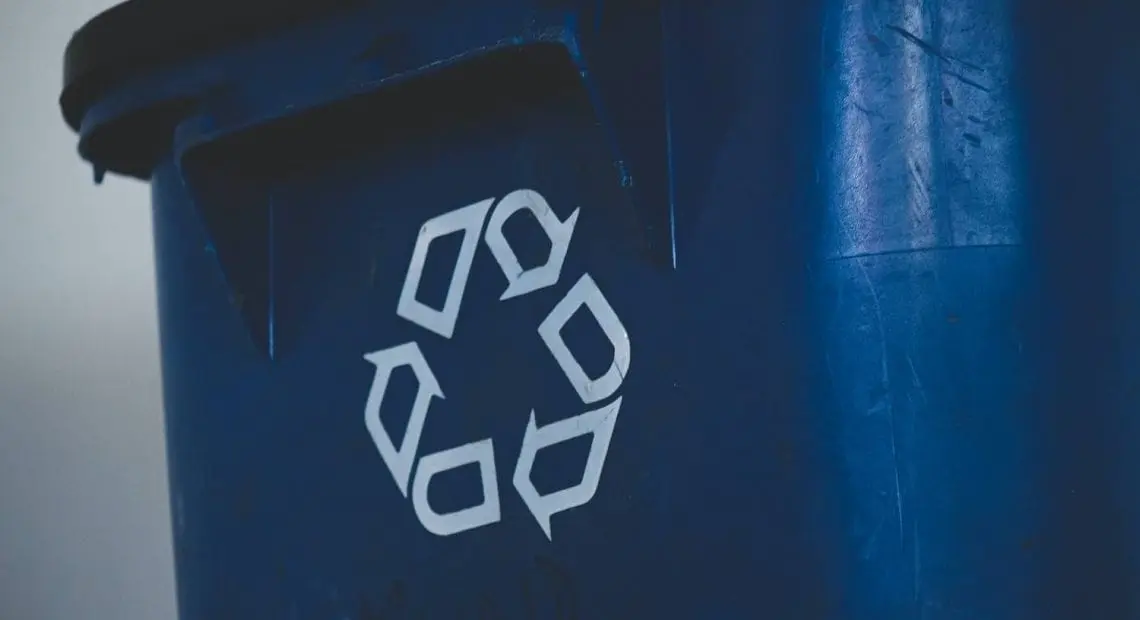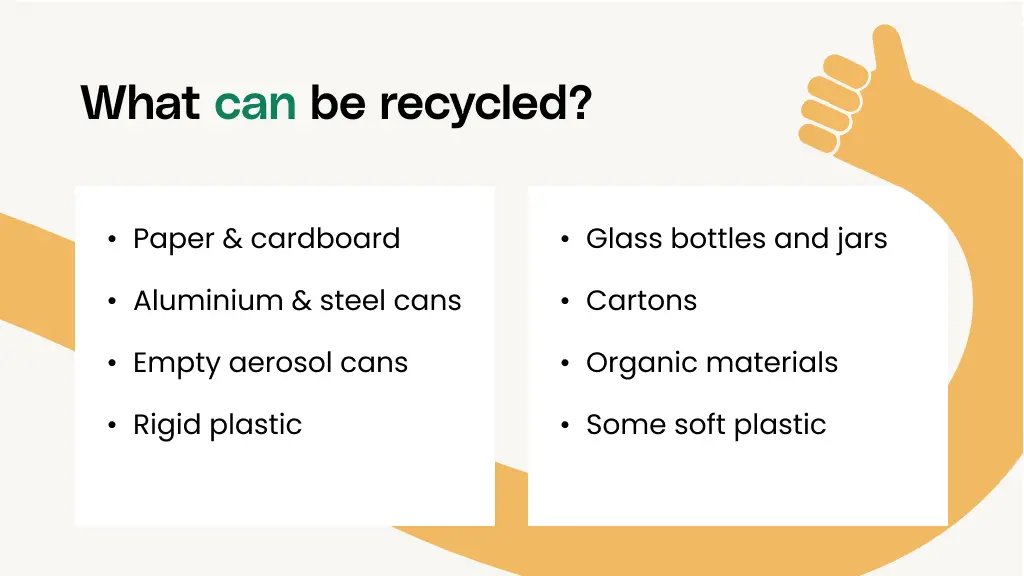
According to ABC’s War on Waste, 70% of Australia’s rubbish ends up in landfill, which is both bad for our environment and our health. Rotting rubbish in landfills produces high methane gas and carbon dioxide levels, proving extremely harmful to our atmosphere.Rubbish and waste come in many shapes and materials. Understanding what can be recycled and how to correctly manage recyclable items is an important part of doing your part in an effort to move towards a landfill-free planet.
What Can You Recycle? The Importance of Classifying Rubbish
As a nation, it is frustrating to see the opportunities we miss when it comes to recycling. If we were all to take recycling more seriously, it would have some incredible impacts on Australia’s problem with landfill.
Here are some top statistics from ABC’s War on Waste that highlight the sheer value of recycling in Australia:

- 94% of Australia make mistakes with what can be recycled
- 91% of plastic isn’t recycled, when it can be
- Two-thirds of glass doesn’t get recycled when glass is 100% recyclable
- 11 million tons of recyclable clothing and shoes are thrown away every year
- $11.4 billion worth of recyclable containers and packaging are thrown away every year
Knowing what can be recycled is important information to learn for your household, commercial space or industrial setting. Setting up correct recycling practices and learning to classify our rubbish can significantly reduce overall environmental impact. There are many ways to re-use, recycle, donate and convert waste to energy. Sure, it might be a more involved process, but at Ridly we think it’s worth protecting the environment and finding alternative destinations for most of your rubbish.
So, What Can You Recycle?
Let’s get into the types of classifications for recyclable waste.
For household recycling, most councils will offer a bin for non-recyclable rubbish, recyclable items and organic waste. Certain councils will offer a four-bin system in which recyclable items are split into a paper recycling bin and mixed recycling bin for plastic, glass and metal recycling.

Paper Recycling
When considering what can be recycled for paper goods, think newspapers, office paper, cereal and snack boxes and cardboard. The one exception that is easy to miss is waxed cardboard items; these cannot be recycled.
When disposing of food items such as an old pizza box, try and clean out the scraps. A little bit of grease or cheese might be ok, but you should eliminate any crusts or leftovers before disposing into the paper recycling.
If you have any cardboard packaging to dispose of, try and remove any stickers or tape as these cannot be recycled with paper recyclable items. Otherwise, hire your local experts for prompt and reliable cardboard collection.
Organic Materials – What Can be Recycled?
Organic materials such as grass clippings, flowers and pruning’s, twigs, small branches and leaves can be easily recycled. As these are organic materials, they can be recycled and re-used for a number of applications. Most of these materials will be taken to an Organic Resource Recovery Facility where they can be shredded, broken down and recycled into products used for agriculture, horticulture, landscaping and other products that return minerals and nutrients to soil for plant growth. Make sure larger recyclable items are broken up so that they can fit in the bin.
What Can We Recycle for You?
The organic recycling bin is typically green and collected once a fortnight. If you have organic waste that is too bulky or heavy to dispose of yourself, Ridly can safely dispose of tree stumps, logs, branches and other green and organic materials from your garden. We will not only safely remove your green waste but make sure it is safely disposed of where other companies will take your green waste straight to landfill.
What can we recycle that you can’t? Got a large item you are still unsure about? Get in touch with Ridly to find out more about our services and green waste removal.
What Can Be Recycled at Home?
Unlike metal and plastic recyclable items, green and organic waste can also be recycled at home with just a small amount of effort. You can recycle your kitchen and food scraps with a small composter or worm farm which could even supply you with nutrient-rich materials to use in your garden. This could reduce the need to buy other gardening products. Lowering your consumption will also reduce your waste and environmental impact whilst saving you money!
Organic matter from trees, plants and flowers can also be broken up in relatively inexpensive mulchers to spread back in your garden. If you do not have the space or resources to re-use your organic matter, talk to your local council to find out about any community gardens of composting projects, or hire a garden waste disposal company like Ridly.

Mixed Recycling (Metals, Glass and Rigid Plastics)
Mixed recycling refers to your household items such as:
Metals: Tin, steel and aluminium cans
Glass: Food containers, jars, wine and alcohol bottles, beer bottles
- Before recycling your mixed recyclables, make sure to give them a quick rinse; this could be easy as washing out the end of a milk bottle with some tap water. By doing this, it reduces the potential for contamination and helps your bin stay clean and odour-free.
- If you have lots of small items such as bottle tops or plastic caps, try and pack them inside another larger container as small pieces like these can clog up machinery.
- Like paper recyclable items try to remove stickers, "label"s or other unlike materials that would be recycled differently to your mixed recyclable items.
Knowing What Can Be Recycled Could Also Earn You Money!
If you are a business or household with many leftover drink containers, the government has employed a return & earn scheme where you can take your containers to a return point and earn a refund.
Soft Plastic Recycling
Traditionally, councils have not recycled soft plastics as they have jammed machinery; however, soft plastic recycling has now become more and more common. It is a great way to reduce the amount of waste you send to landfill. Previously these items have been going in rubbish bins to landfill, but now there are solutions to recycle them.
Soft plastic is basically anything you can scrunch up in your hand. So, what can you recycle from soft plastics?
- Cereal Box Liners
- Confectionary bags
- Plastic Bags
- Old green shopping bags
- Biscuit Packets, Wrapper only
- Bread bags, Pasta and Rice Bags
- Bubble Wrap
- Toilet Paper Wrappers
- Chocolate and Muesli Bar Wrappers
Keep these set aside from your other recyclable items. Once you have collected your soft plastics and are ready to dispose of them, most Coles and Woolworths now have bins inside their stores which you can drop them off to be recycled. Soft plastics can be recycled into many products such as park benches, decking, bollards and more.
What Can You Recycle at A Local Waste Depot?
Council waste depots are often a great way to recycle trickier items such as batteries and electronic waste, mattresses and gas bottles, to name a few. However, they don’t always have the best reputation for being environmentally responsible in their waste removal services. At Ridly, we have done our research and carefully select recycling centres committed to ethical and sustainable recycling practices. By choosing us, you can trust that we’ll take away your items and correct dispose of them.
As the leaders in recycling and responsible rubbish removal in Australia, we’ve provided detailed guides to recycling old couches, mattress recycling, fridge recycling and white goods removal Sydney services.
E-Waste disposal
Incorrect disposal of electronic waste, especially into landfills, can result in toxic chemical leaching into soil and contaminating groundwater and recyclable materials. Some electronics also contain valuable resources such as precious metals that can be re-used to produce new products. A simple and reliable way to safely recycle e-waste is to call an Ridly team that you can trust to dispose of the materials safely.

Non – Recyclable items
Although in a perfect world, all our items and products would be recyclable, some items cannot be disposed of. Below is a basic list of non-recyclable items.
- Plastic bags
- Polystyrene such as foam packaging/food trays
- Window glass, light globes, mirrors
- Pyrex, crockery, drinking glasses
- Sharps and syringes
- Nappies
- Waxed or cardboard containers with food scraps, tissue paper and napkins cannot be recycled
Nappies are a tricky one. Many products say they are compostable and biodegradable; however, none have been certified as compostable and are potentially misleading. Some industrial composters may be able to take your nappies but are not obliged to, and most times it is safest to dispose of these in your rubbish bin. If you are looking for a more environmentally sustainable alternative, try using a cloth nappy which can be wash and re-used.
If you still have items you are unsure how to dispose of Ridly is here to provide solutions to all your rubbish removal needs.
What Can Be Recycled – Key Takeaways
Actively separating and classifying your rubbish goes a long way in helping the environment. Each council may have its own guidelines for certain materials, so make sure to comply with your local government area regulations.
Although recycling is great, it should only be done when you can’t find any other use for your items. Here at Ridly, we’re passionate about repurposing, re-using and finding a new use for waste. Here are a few basic methods you can use to re-use your items reduce your overall waste:
- Donating old clothes and shoes to charity
- Selling unwanted electronic items or whitegoods as second hand online
- Re-using jars or packaging
- Reducing the number of single-use items, you use and investing in reusable materials
Knowing what can be recycled is one of the easiest steps that you can take to pave the way for a cleaner, more sustainable future. By separating and recycling your waste, you actively help the environment by reducing energy consumption, greenhouse gases and protecting our environment from contamination of potentially harmful chemicals. Ridly is the best choice to safely remove, dispose and recycle your rubbish – we’re 100% committed to being the single point of contact for all your recycling needs.